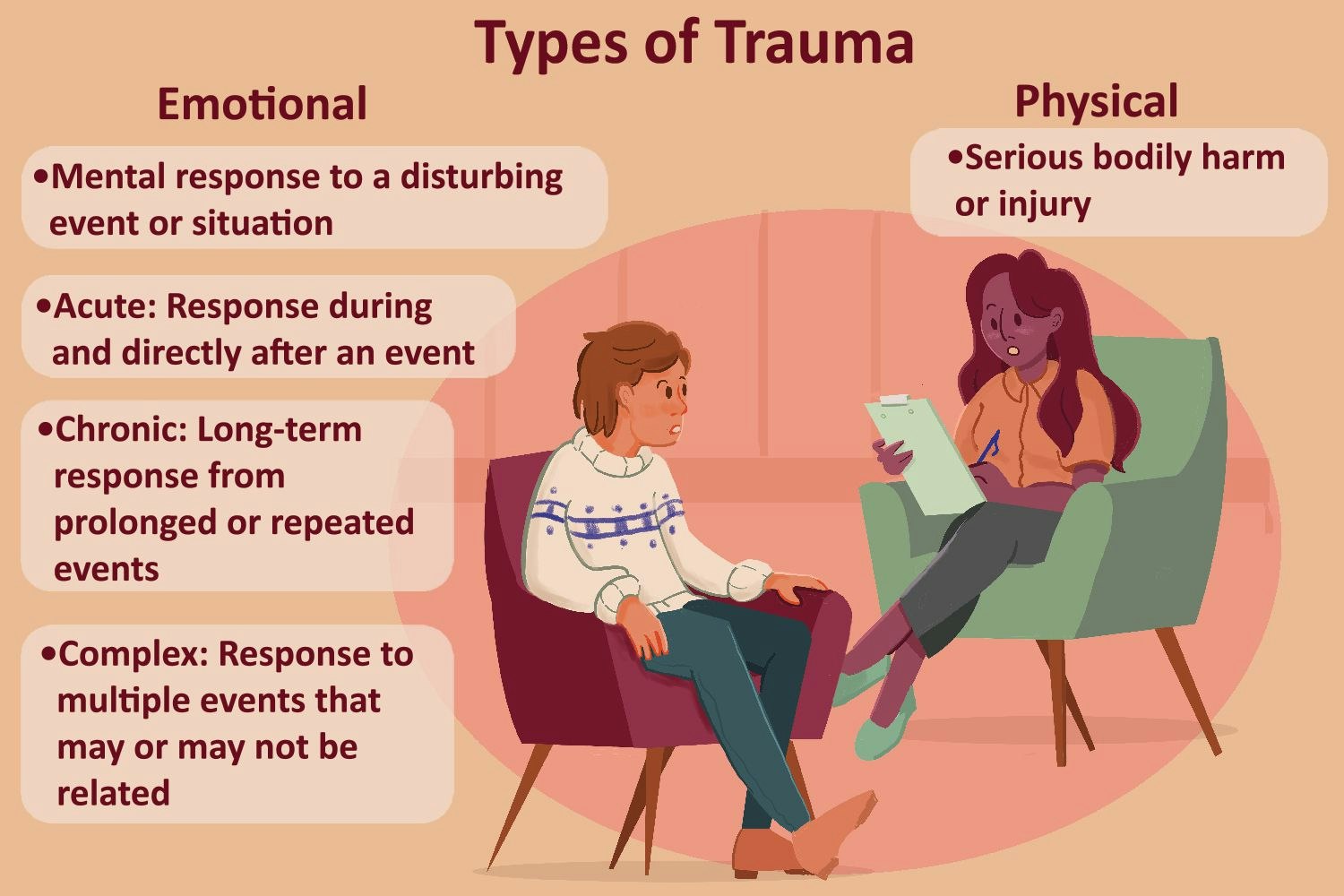Coping with a Traumatic Event
How do people respond to traumatic events?
A traumatic event is a shocking, scary, or dangerous experience that can affect someone emotionally and physically.
It is natural to feel afraid during and after a traumatic situation. Fear is a part of the body’s “fight-or-flight” response, which helps us avoid or respond to potential danger. People may experience a range of reactions after trauma, including:
.png?ixlib=rb-1.1.0&w=2000&h=2000&fit=max&or=0&s=0549b9736a3b0f99b74091aff6896d2c)
· Feeling anxious, sad, or angry
· Trouble concentrating and sleeping
· Continually thinking about what happened
Most people will recover from these symptoms, and their reactions will lessen over time. Those who continue to experience symptoms may be diagnosed with post-traumatic stress disorder (PTSD).
It is important to seek professional help if symptoms do not improve over time or begin to interfere with daily life. Some signs that a person may need help include:
· Worrying a lot or feeling very anxious, sad, or fearful
· Crying often
· Having trouble thinking clearly
· Having frightening thoughts or flashbacks, reliving the experience
· Feeling angry, resentful, or irritable
· Having nightmares or difficulty sleeping
· Avoiding places or people that bring back disturbing memories and responses
· Becoming isolated from family and friends
Physical responses to trauma may also mean that a person needs help. Physical symptoms may include:

· Having headaches
· Having stomach pain and digestive issues
· Having difficulty falling asleep or staying asleep
· Having a racing heart and sweating
· Being very jumpy and easily startled
People who have a personal or family history of mental illness or substance use, who have had previous exposure to traumatic experiences, who face ongoing stress or trauma (such as abuse), or who lack support from friends and family may be more likely to develop more severe symptoms and need additional help.
.png?ixlib=rb-1.1.0&w=2000&h=2000&fit=max&or=0&s=017a20dbd6b67842575e213c5f431975)
Support Service - Feel free to contact Chaplain Rob Hinkelman at 951-454-2082 or email rob.hinkelman@swfe.org
Post-Traumatic Stress Disorder
This brochure provides information about post-traumatic stress disorder (PTSD) including what it is, who develops PTSD, symptoms, treatment options, and how to find help for yourself or someone else who may have PTSD.
Coping with a Disaster or Traumatic Event | CDC Emergency Preparedness & Response
Posttraumatic Stress Disorder (PTSD) | Anxiety and Depression Association of America, ADAA
PTSD is a serious potentially debilitating psychiatric disorder that can occur in people who have experienced or witnessed serious or life-threatening events.
.jpeg?ixlib=rb-1.1.0&w=2000&h=2000&fit=max&or=0&s=7ea23ab69f73931bc11177829905e79d)
